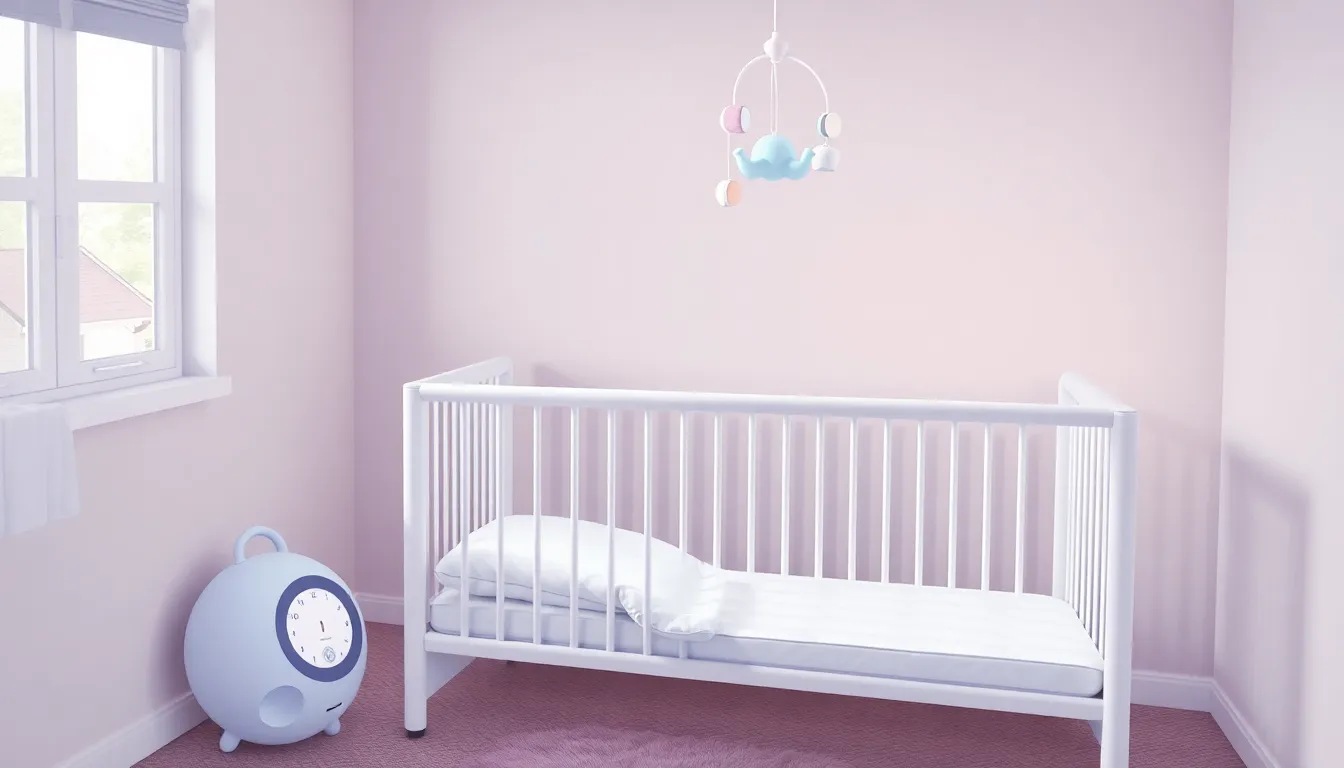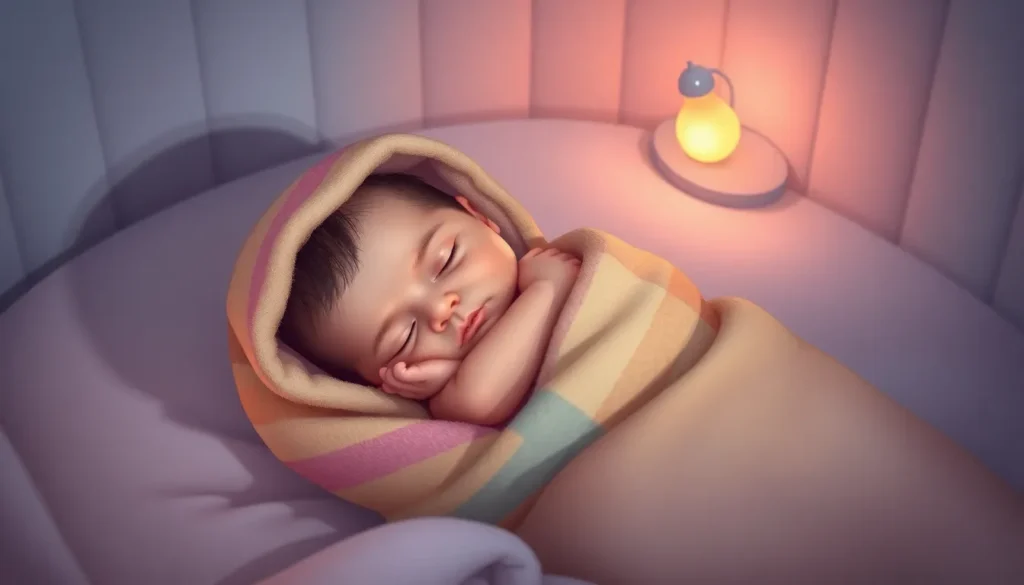Newborns are like tiny, adorable burritos that need a whole lot of snooze time. In those first few weeks, parents often wonder if their little bundle of joy is secretly training for the Olympics or just mastering the art of napping. With sleep being a vital ingredient for their growth and development, figuring out how much shut-eye is necessary can feel like cracking a secret code.
While it might seem like newborns are in a perpetual state of hibernation, understanding their sleep needs can help parents navigate the sleepless nights with a bit more confidence. From catnaps that last a few minutes to longer stretches that leave parents wondering if they’ve entered a different time zone, knowing the right amount of sleep can make all the difference. Let’s dive into the world of newborn slumber and uncover the magic number that keeps those little eyes closed and those tiny dreams alive.
Understanding Newborn Sleep Patterns
Understanding how much sleep newborns need can help parents navigate their baby’s sleep cycles. Newborns exhibit unique sleep patterns essential for their development.
Typical Sleep Duration
Newborns typically require 14 to 17 hours of sleep daily. During the first few weeks, sleep often occurs in 2 to 4-hour intervals. Some babies may sleep longer stretches at night, while others take frequent naps during the day. Parents should expect variability in sleep duration because each baby is different. Recognizing that sleep needs can change as a baby grows is crucial.
Sleep Cycles in Newborns
Sleep cycles in newborns differ from those in older children and adults. Each cycle lasts about 50 to 60 minutes, alternating between active and quiet sleep. Active sleep resembles rapid eye movement (REM) sleep, during which dreaming occurs. Quiet sleep, on the other hand, allows the body to rest and rejuvenate. Newborns spend approximately 50% of their sleep in active sleep, which aids brain development and learning. Understanding these cycles can help parents interpret their baby’s sleep behavior effectively.
Factors Influencing Newborn Sleep

Understanding the factors that influence newborn sleep can help parents manage their baby’s rest needs effectively.
Age and Developmental Stages
Newborns experience rapid growth and development. At two weeks, they may sleep 14 to 17 hours, often in shorter intervals. Sleep duration can change drastically as they grow. Around a month, some may begin to sleep longer at night due to neurological development. By three months, sleep needs may stabilize as babies start to align their circadian rhythms. Differences in sleep patterns often relate to developmental milestones. Overall, keeping track of these stages helps parents anticipate changes in sleep requirements.
Environment and Comfort
Creating a comfortable sleep environment enhances a newborn’s ability to sleep. Soft lighting promotes relaxation, while suitable room temperature, ideally between 68°F and 72°F, supports restful slumber. Crib safety is crucial; using a firm mattress and avoiding soft bedding reduces risks. Background noise can also influence sleep quality; a white noise machine often soothes newborns. Consistent routines help signal bedtime. Environmental comfort directly impacts the frequency and quality of sleep, making these factors critical for healthy rest.
Signs of Healthy Sleep
Newborns display several signs indicating healthy sleep habits. Recognizing these cues assists parents in ensuring their baby sleeps well.
Sleep Cues to Observe
Yawning is a prevalent sign that a newborn is ready for sleep. Rubbing eyes often occurs when babies feel tired. Moving slower and becoming less active frequently indicates the need for rest. Crying can signal frustration or fatigue, suggesting the baby requires soothing to fall asleep. Watching for these cues helps parents establish a timely bedtime routine, promoting optimal sleep patterns.
Sleep Disruptions and Concerns
Frequent awakenings can indicate discomfort or other concerns. A newborn struggling to settle or becoming irritable during sleep may need parents to assess their environment. Changes in feeding habits often accompany sleep disruptions; this might be a signal of hunger or growth spurts. Overstimulation before bedtime can also lead to restless nights. Addressing these issues promptly helps maintain healthy sleep cycles for newborns.
Recommendations for New Parents
New parents should prioritize creating an optimal sleep environment and establishing effective routines for their newborns.
Creating a Sleep-Friendly Environment
A dark, quiet room promotes better sleep for newborns. Soft lighting and white noise machines can mask household sounds that disrupt rest. Maintaining a comfortable temperature, ideally between 68 and 72 degrees Fahrenheit, helps keep babies cozy. Safety is paramount; placing babies on their backs in a crib free of loose bedding minimizes risks. Consistency in these environmental factors allows for a smoother transition into restful sleep phases.
Establishing Routines
Developing a consistent bedtime routine sets clear expectations for newborns. Parents can incorporate calming activities such as baths, gentle rocking, or reading. Choosing the same time each evening emphasizes the importance of sleep. Gradual cues signal to the newborn that it’s time for rest, facilitating the process. Routines not only help babies relax but also provide parents with predictability, creating a comforting atmosphere for everyone involved.
Understanding newborn sleep patterns is crucial for parents navigating those early weeks. While newborns typically need 14 to 17 hours of sleep daily, recognizing the variability in sleep duration is key. Each baby is unique and may follow different sleep cycles.
By creating a conducive sleep environment and establishing consistent bedtime routines, parents can foster better sleep quality. Paying attention to signs of tiredness and addressing any potential disruptions can significantly enhance their baby’s rest. With patience and awareness, parents can support their newborn’s sleep needs and promote healthy development during this critical stage.





